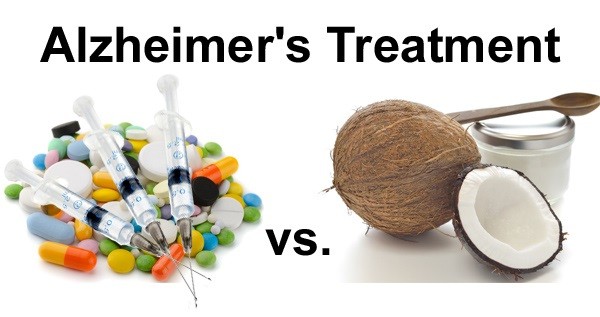
by Brian Shilhavy
Editor, Health Impact News
A study just published in August 2018 in the journal Food and Chemical Toxicology confirms what many people have already discovered: coconut oil can improve or even reverse the effects of Alzheimer’s Disease.
This is believed to be the first peer-reviewed study to examine coconut oil’s effect on Alzheimer’s Disease.
The title of the study is Virgin coconut oil (VCO) by normalizing NLRP3 inflammasome showed potential neuroprotective effects in Amyloid-β induced toxicity and high-fat diet fed rat.
Researchers from Kermanshah University of Medical Sciences and Hamadan University of Medical Sciences in Iran used rats in a laboratory to study “the effects of virgin coconut oil (VCO) on inflammasome and oxidative stress in an Alzheimer’s model.”
Their study found that the rats fed VCO “improved hippocampus histological changes, reduced Aβ plaques and phosphorylated Tau.” (Phosphorylated Tau is a biological marker for Alzheimer’s Disease.)
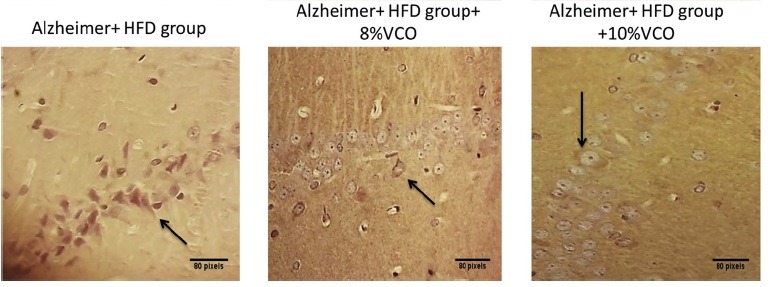
From the study: IHC staining of hippocampus sections. IHC test was done to detect phosphorylated tau in CA1 region of hippocampus neurons.
They concluded that virgin coconut oil “showed potential neuroprotective effects.”
From the study conclusion:
Virgin Coconut Oil improves the health of the hippocampus and improves memory and learning in Alzheimer and HFD model rats by inhibiting inflammasome and reducing oxidative stress.
Virgin Coconut Oil Shows Better Results than Pharmaceutical Drugs in Treating Alzheimer’s
We have been publishing testimonials from users giving virgin coconut oil to Alzheimer’s patients for about 10 years now. Many of these testimonials are found on our CoconutOil.com website, which contains over 17 years of research.
Much of the information regarding coconut oil’s positive effects on Alzheimer’s Disease (AD) gained national attention in 2008 with the publication of Dr. Mary Newport’s case study on her husband, who was suffering from AD and saw a complete reversal after starting coconut oil.
While not everyone sees the same results, some of the testimonials reported to us over the years have been truly miraculous. See the “Testimonials” section here.
However, in spite of this overwhelming anecdotal evidence, groups like The Alzheimer’s Association have never endorsed it, and, in fact, have warned people against trying coconut oil. (See: Alzheimer’s Association Warns Against Coconut Oil – Member Replies “Coconut Oil Gave us our Father Back!”)
The Alzheimer’s Association is seen by most as simply a “front group” for pharmaceutical companies who want to develop drugs to treat Alzheimer’s.
The rationale used to warn people against using coconut oil for Alzheimer’s is that there were no scientific studies backing the claims. We have encouraged people to use coconut oil anyway, as it is a natural food with virtually no side effects, and to not wait for the science to come in.
Now, we have one of the first peer-reviewed studies looking at the effects of coconut oil on Alzheimer’s, but since it does not benefit drug companies, do not expect to see this research promoted in the corporate-sponsored “mainstream” media.
As the Iranian study above noted:
Studies have shown that at ages over 65, one of every eight, suffers from AD, and the probability of developing this disease at the age of 85 is 40–50%.
This represents a huge market for pharmaceutical products to develop an Alzheimer’s drug.
However, as we have reported over the years here at Health Impact News, such drugs have so far been abysmal failures. (See: Big Pharma’s Continued Failure to Develop an Effective Alzheimer’s Drug: Are Alzheimer’s Vaccines Next?)
The primary reason for this is because drug makers start out with the wrong presupposition about the cause of Alzheimer’s.
To admit that environmental factors such as toxic food, toxic heavy metal exposure such as aluminum, and drugs themselves, including vaccines, are all a part of the problem, would be to commit financial suicide.
Pharmaceutical companies have seen their greatest profits in the past on the backs of seniors with blockbuster cholesterol-lowering statin drugs.
To admit that low levels of cholesterol are actually part of the problem with neurological diseases such as Alzheimer’s, not the solution, would open them up to admitting that statin drugs were one of the biggest medical frauds of all time.
How to Choose Coconut Oil and Healthy Fats
As ground breaking as this Iranian study on virgin coconut oil and Alzheimer’s is, it does make some confusing statements about fats.
One of the controls used with the various groups of rats was “high fat.” The researchers list “high fat” as a contributing cause to Alzheimer’s.
This does make sense if we properly define “high fat,” which unfortunately the authors did not. The primary “fat” consumed in modern diets are actually oils, polyunsaturated oils, or their “fat” equivalent when they are hydrogenated. (“Oil” is typical defined as a liquid edible oil, and “fat” is typically defined as a solid edible oil.)
In general, the popular dietary oils today are vegetable oils: soybean oil, corn oil, and canola oil, or some combination of the three.
These dietary oils were not part of the food chain prior to WWII, when expeller-pressed technology was developed to extract oils from seeds like corn and soy.
A heavy campaign against saturated fats was started, which included animal fats, dairy, and the tropical oils like coconut oil. The whole “lipid theory” of heart disease, a theory now thoroughly proven false, was used to condemn saturated fats and encourage people to start consuming the newer polyunsaturated fats.
Research shows that processed polyunsaturated fats are not stable and prone to oxidation, while natural saturated fats are not.
Therefore, when the term “high fat” diet is used today in alternative health, it is NOT referring to a diet high in processed fats derived from vegetable oils, but in natural saturated fats that have been in the food chain for thousands of years. This would include animal fats such as tallow, lard, and dairy, as well as coconut oil, the most saturated fat in nature.
Of course animal fats are only as healthy as the animals are. So one should look for animal fats from animals that are pasture-based and not crowded, confined animal feeding operations where disease and sickness must be managed in these factory farms.
The researchers did use a truly “virgin” coconut oil according to the description they wrote. It was a wet-milled coconut oil produced by fermentation.
However, they separated the oil from the water via centrifuge, with no heat, and numerous studies show that if heat is used in the process of extracting virgin coconut oil, antioxidant levels are actually higher.
This is counter-intuitive to many other foods, where heat can destroy antioxidant properties.
To learn more, please see:
What Type of Coconut Oil is Best? How to Choose a Coconut Oil
As far as the amount of virgin coconut oil to eat to see health benefits, the testimonials we have published over the years with people suffering from Alzheimer’s or other neurological diseases ranged from three tablespoons a day to as much as nine tablespoons a day, spread out throughout the day and usually taken with food.
Too much coconut oil to start can induce diarrhea, so it is best to start out slow and work one’s way up to larger amounts that can be tolerated.
The researchers in the Iranian study stated that they used similar amounts of virgin coconut oil as consumed by humans in the 10% VCO rat group that saw the most benefits, which equates to 2–3.5 tablespoons daily for a 72 kg (159 lb) man.
More Research on Coconut Oil and Alzheimer’s Disease
Virgin Coconut Oil and Alzheimer’s Disease
A Holistic Guide to Geriatric Care – eBook
In this book we look at the problems and causes of Alzheimer’s as they are related to an epidemic of prescription drugs being marketed to seniors, and we look at the strong evidence for dietary intervention, starting with coconut oil.
We bring you the stories of 10 different families who saw Alzheimer’s lessened or reversed by adding coconut oil to their diet, which is representative of thousands of others who are experiencing similar results. We offer guidelines on usage and types of coconut oil to consider, as well as other non-drug tips for holistic geriatric care.
Our target audience is the millions of caregivers out there loving and caring for our senior population, who will find it difficult to get this information from their doctors or medical professionals, not trained in these areas.
Read Virgin Coconut Oil and Alzheimer’s Disease on your mobile device!
$1.99
About the author: Unlike many people who write about coconut oil by simply reading about it, Brian Shilhavy actually lived in a coconut producing area of the Philippines for several years with his family, observing firsthand the differences between the diet and health of the younger generation and those of his wife’s parents’ generation still consuming a traditional diet. This led to years of studying Philippine nutrition and dietary patterns first hand while living in a rural farming community in the Philippines. Brian is the author of the best-selling book: Virgin Coconut Oil: How it has changed people’s lives and how it can change yours!
Read the Virgin Coconut Oil eBook on Your Mobile Device!



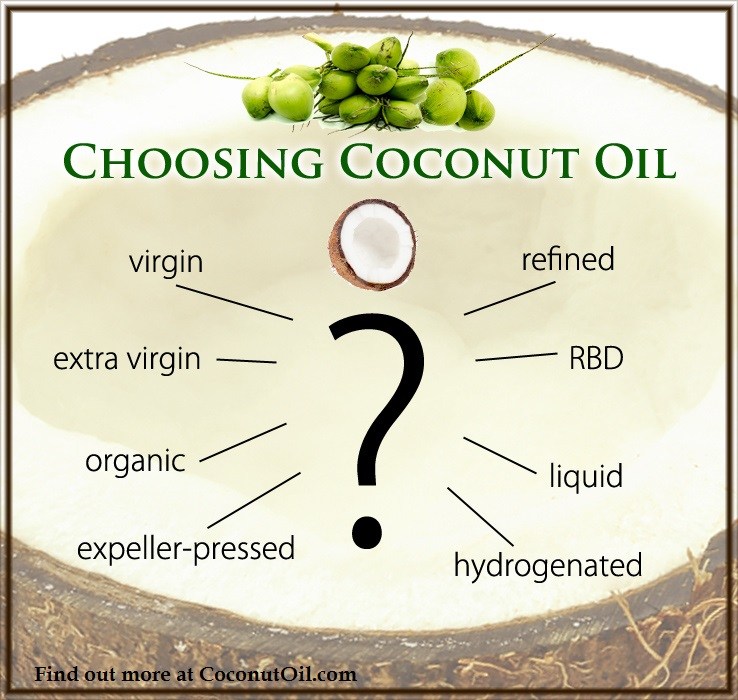
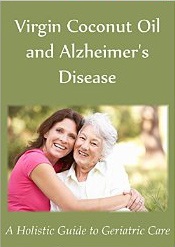



 HHS Secretary Kennedy Breaks His Promise: "War on Saturated Fat" Kept in Tact with New U.S. Dietary Guidelines
HHS Secretary Kennedy Breaks His Promise: "War on Saturated Fat" Kept in Tact with New U.S. Dietary Guidelines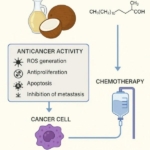 Research Continues to Show Virgin Coconut Oil's Effectiveness in Treating Cancer
Research Continues to Show Virgin Coconut Oil's Effectiveness in Treating Cancer Coconut Oil Continues to Benefit Alzheimer's Patients over Drugs as Studies Continue for Neurological Benefits
Coconut Oil Continues to Benefit Alzheimer's Patients over Drugs as Studies Continue for Neurological Benefits How the Simple High-Fat Low-Carb Ketogenic Diet Continues to Change People's Lives
How the Simple High-Fat Low-Carb Ketogenic Diet Continues to Change People's Lives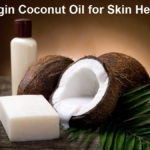 New Studies Continue to Show that Coconut Oil is the Best Oil for Treating Skin Conditions and Maintaining Healthy Skin and Teeth
New Studies Continue to Show that Coconut Oil is the Best Oil for Treating Skin Conditions and Maintaining Healthy Skin and Teeth
Leave a Reply